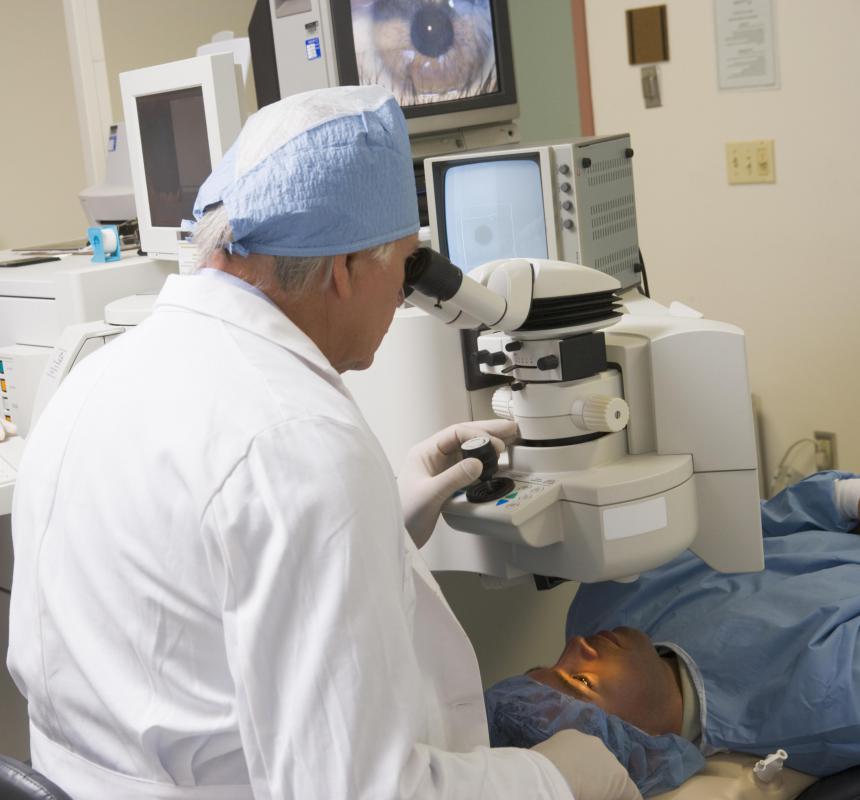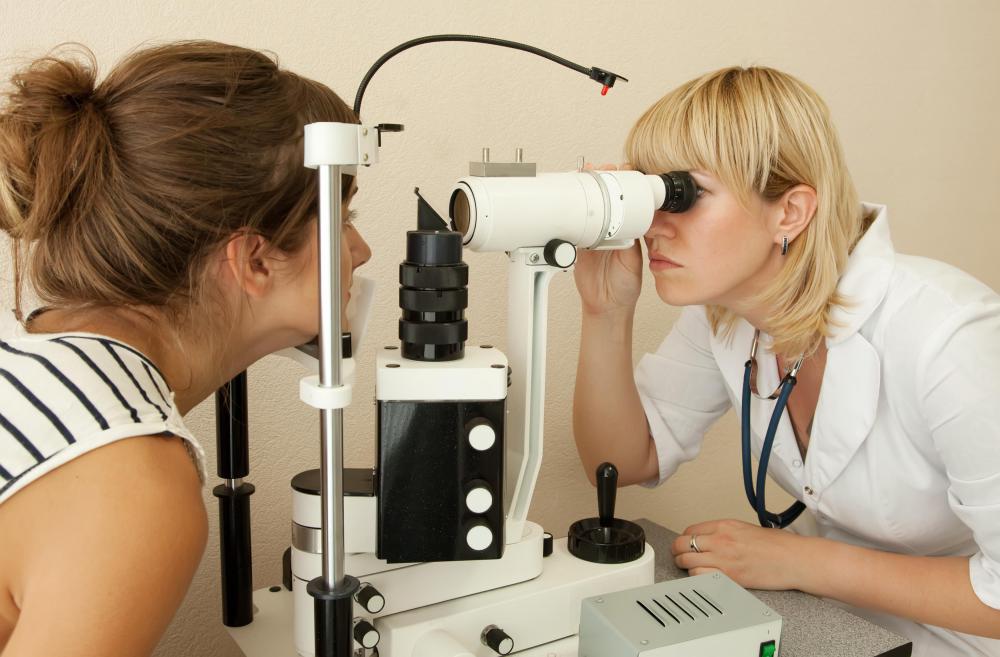At TheHealthBoard, we're committed to delivering accurate, trustworthy information. Our expert-authored content is rigorously fact-checked and sourced from credible authorities. Discover how we uphold the highest standards in providing you with reliable knowledge.
What Should I Expect from Macular Hole Surgery?
Macular hole surgery is performed by doctors for the treatment of a macular hole in the eye. These holes occur when the vitreous separates from the eye causing a small hole to develop in the retina. If the hole is not treated, vitreous fluid can build up in the hole causing blurred vision, dark spots and problems reading. The surgical procedure to repair the macular hole is a vitrectomy. The surgery requires extensive follow-up and has several risks associated with the procedure.
Patients have this surgery under local anesthesia on an outpatient basis. During the vitrectomy, the surgeon takes out the vitreous fluid from the hole and cleans the eye. The surgeon then fills the hole with air and gas, making a small bubble. The bubble works as a bandage and is gradually absorbed by the eye. When the surgery is finished, the surgeon will put a patch over the patient’s eye and send the patient home a few hours later.

After the procedure, patients must stay in a face-down position for two to three weeks. This allows the surgically inserted bubble to press against the eye and attach itself to the macula. The bubble will slowly dissolve and the hole will fill up with the eye’s natural fluids. Since lying face-down is crucial to recovery, doctors will not allow individuals to have the procedure if they are unable to do so.

Long term post-operative treatment after macular hole surgery consists of eye drops for a few months and annual eye examinations. Individuals will need to have their vision monitored for visual defects and change in eye pressure. If a change in eye pressure is noted, doctors may recommend a visit to an eye specialist to check for cataracts.
There are several risks associated with having macular hole surgery that patients should be aware of. One such risk following macular hole surgery is the possibility of the patient developing cataracts. Individuals could also suffer retinal detachment and infections. Some people may experience vision problems after surgery that could be temporary or permanent. Physicians also advise patients not to travel by air shortly after the surgery because the increased air pressure could cause the eye bubble to pop.

Despite the risks, doctors indicate that vitrectomy surgery has a fair success rate. Factors for success include a person’s age, depth of the hole and the skill of the surgeon performing the macular hole surgery. However, there is a small chance that the patient could get a macular hole in the other eye.
AS FEATURED ON:
AS FEATURED ON:















Discussion Comments
I am scheduled to have this procedure done in ten days. How am I to stay 'face down' for days?
Post your comments